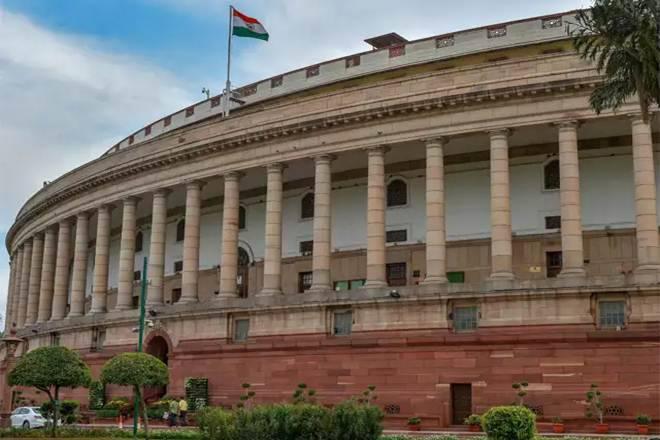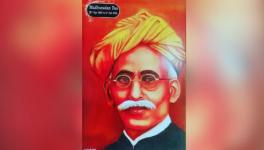Cancellation of Winter Session of Parliament Helps the Government Duck Tough Questions

Laying the foundation stone of the new Parliament building earlier this month, Prime Minister Narendra Modi said that while there was a place for differences, there was none for any disconnect to take place. Then he quoted Guru Nanak said that conversations should continue till the world existed and that was the soul of democracy.
It is ironic that days after Modi extolled the virtues of dialogue in a democracy, his government decided to cancel the winter session of Parliament due to the ongoing Coronavirus pandemic. This, at a time when countries like the United States and Britain, which fared far worse in handling the coronavirus infections, convened sessions of their respective legislative institutions.
But the Modi government’s decision came as no surprise.
It was very much in line with its approach to Parliament and other institutions. Modi himself has done everything possible to undermine Parliament over the six years he has been in power though he pays lip service to it, describing it as the “temple of democracy”.
Modi is barely seen in Parliament while his government is generally reluctant to concede to the opposition’s demands for discussion on key issues. Its constant endeavour is to circumvent Parliamentary procedures.
For instance, the last session of Parliament, convened after considerable delay and did away with question hour. It is this crucial hour that allows the opposition to seek accountability from the treasury on its policies and programmes.
Contrary to his public statements, the Prime Minister has little time for Parliament or parliamentary niceties.
Modi is barely seen in Parliament while his government is generally reluctant to concede to the opposition’s demands for discussion on key issues. Its constant endeavour is to circumvent Parliamentary procedures.
The treasury avoids referring Bills to Parliamentary committees for greater scrutiny and in a bid to rush through its legislative agenda it has adopted the route of promulgating ordinances.
In the run-up to the monsoon session, the Modi government promulgated as many as 11 ordinances which were then hurriedly converted into laws in Parliament without a proper debate.
The controversial Farm Bills were among those which were rammed through in the last session. The passage of these legislations witnessed unruly scenes in the Rajya Sabha when deputy chairperson Harivansh Narayan Singh helped the government by ignoring the opposition’s demand for a vote on the Bills.
Opposition parties were ready to mount an offensive against the government for not listening to the farmers who feel the new laws will threaten their livelihood and leave them at the mercy of corporates.
This legislation has now created a major problem for the Modi government as thousands of angry farmers amassed along the Delhi borders to demand the repeal of the farm laws are in no hurry to end their stir.
Finding itself in a jam over the continuing farmers’ agitation, the government is clearly reluctant to discuss the contentious agriculture laws and its handling of the protests. Had the winter session of Parliament been held, these twin issues would have figured prominently in the deliberations.
The Modi government is unlikely to admit to it, but it could have avoided this mess if it had not been in such a tearing hurry to pass the farm bills and had instead referred them to a Parliamentary committee for greater scrutiny.
Opposition parties were ready to mount an offensive against the government for not listening to the farmers who feel the new laws will threaten their livelihood and leave them at the mercy of corporates.
Though the opposition is unable to forge a common front against the ruling Bharatiya Janata Party in the electoral arena, there were sufficient signs that the disparate opposition parties would sink their differences and put up a united fight against the government on the farm laws in the winter session.
This would have provided an opportunity to the government to explain its stand to the opposition which, in turn, could have given valuable inputs to strengthen and improve the Bills.
The Modi government is unlikely to admit to it, but it could have avoided this mess if it had not been in such a tearing hurry to pass the farm bills and had instead referred them to a Parliamentary committee for greater scrutiny.
This would have provided an opportunity to the government to explain its stand to the opposition which, in turn, could have given valuable inputs to strengthen and improve the Bills. Agriculture experts and other stakeholders, including representatives of farmers’ unions, could have been consulted in order to forge a consensus.
Unlike Parliamentary debates, the committee members had sufficient time to deliberate on the various clauses of a Bill and even call in experts for greater clarity.
The system of referring Bills to specially-constituted standing committees was introduced in the nineties as it was felt that smaller panels were more conducive to a detailed study of legislation.
Unlike Parliamentary debates, the committee members had sufficient time to deliberate on the various clauses of a Bill and even call in experts for greater clarity.
A conscious decision was taken to hold closed-door meetings which ensured that members were not tempted to indulge in grandstanding and instead conducted discussions in a bipartisan manner. Unless there were major differences among the members, efforts have been made to present a unanimous report.
According to PRS Legislative Research, only 25 percent of the Bills introduced in the Modi government’s first term were sent to committees as compared to 71 percent when the Congress-led United Progressive Alliance government was in power.
The late Finance Minister, Arun Jaitley, often remarked in private conversations that ministers are loath to accept suggestions from the opposition as they tend to get possessive about the Bills they are piloting. “But they forget that these inputs can help improve a legislation….either way, it will still be known as the minister’s bill,” he would often say.
But unfortunately, Jaitley’s views went unheard as the Modi government has been particularly averse to referring Bills to Parliamentary committees.
According to PRS Legislative Research, only 25 percent of the Bills introduced in the Modi government’s first term were sent to committees as compared to 71 percent when the Congress-led United Progressive Alliance government was in power.
In the present Lok Sabha, only 10 percent of the Bills introduced have been referred to committees.
The Right to Food Bill, the UPA government’s flagship legislation, was one such legislation that was deliberately delayed by the opposition. By the time the Bill was passed, the Manmohan Singh government had little time to implement the Act.
Last year, 17 opposition MPs had even written to Rajya Sabha chairman M.Venkaiah Naidu expressing their concern about the government’s habit of bypassing committees, pointing out that “public consultation is a long-established practice where parliamentary committees scrutinise bills, deliberate, engage and work towards improving the content and quality of a legislation.” However, nothing ever came of it.
It is also a fact that deliberations by Parliamentary committees are a time-consuming affair. In fact, when the BJP was in the opposition, it often delayed crucial Bills of the UPA government by prolonging discussions in the standing committees.
The Right to Food Bill, the UPA government’s flagship legislation, was one such legislation that was deliberately delayed by the opposition. By the time the Bill was passed, the Manmohan Singh government had little time to implement the Act.
Modi obviously does not want to face a similar situation.
With his penchant for setting records, Modi is more concerned with flaunting his government’s success rate in the passage of Bills. Moreover, it is impossible for him to countenance any opposition or delay of his plans. And now that the government is comfortably placed in the Rajya Sabha as well, it has another reason not to defer to the opposition. As a result, Parliament is no longer a forum for collective consultation. Instead, it has been reduced to a debating society.
(Anita Katyal is a senior Delhi-based journalist who has covered numerous sessions of parliament. The views are personal.)
Get the latest reports & analysis with people's perspective on Protests, movements & deep analytical videos, discussions of the current affairs in your Telegram app. Subscribe to NewsClick's Telegram channel & get Real-Time updates on stories, as they get published on our website.
























